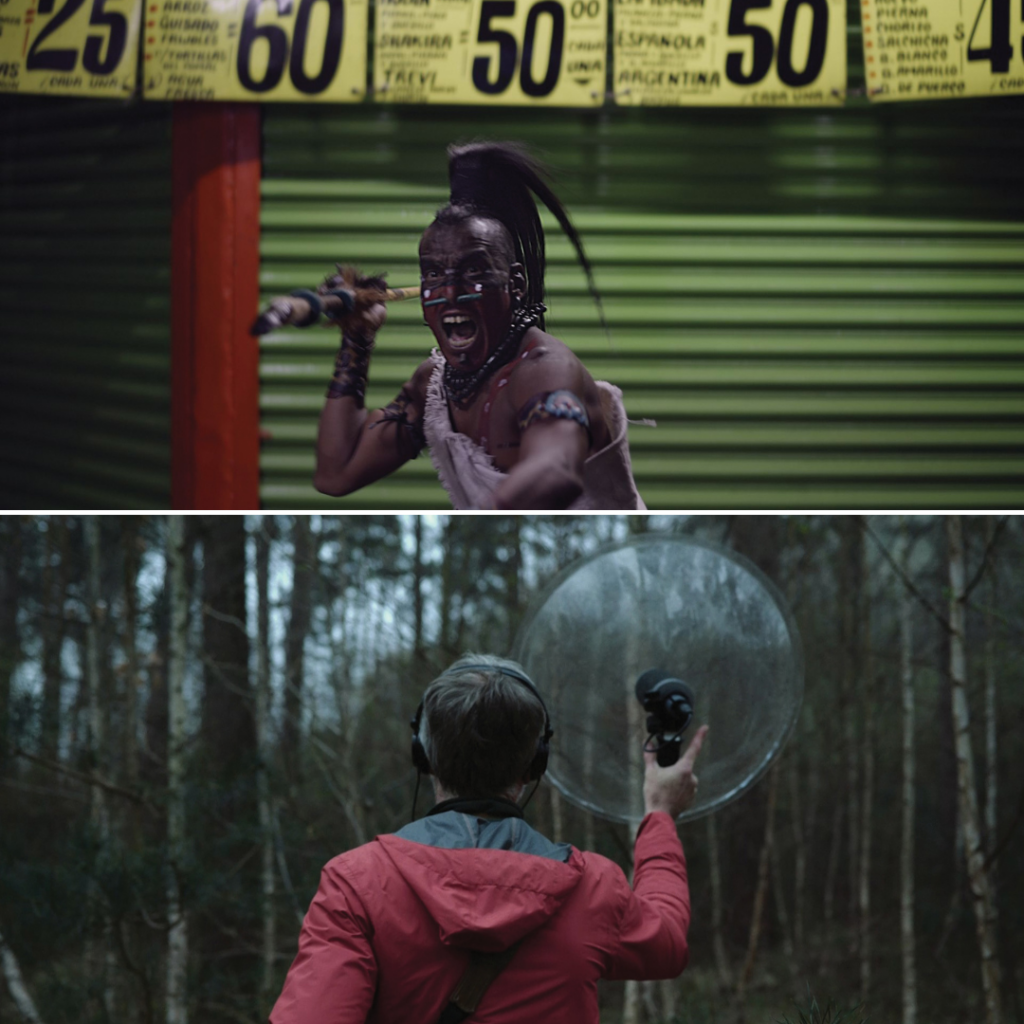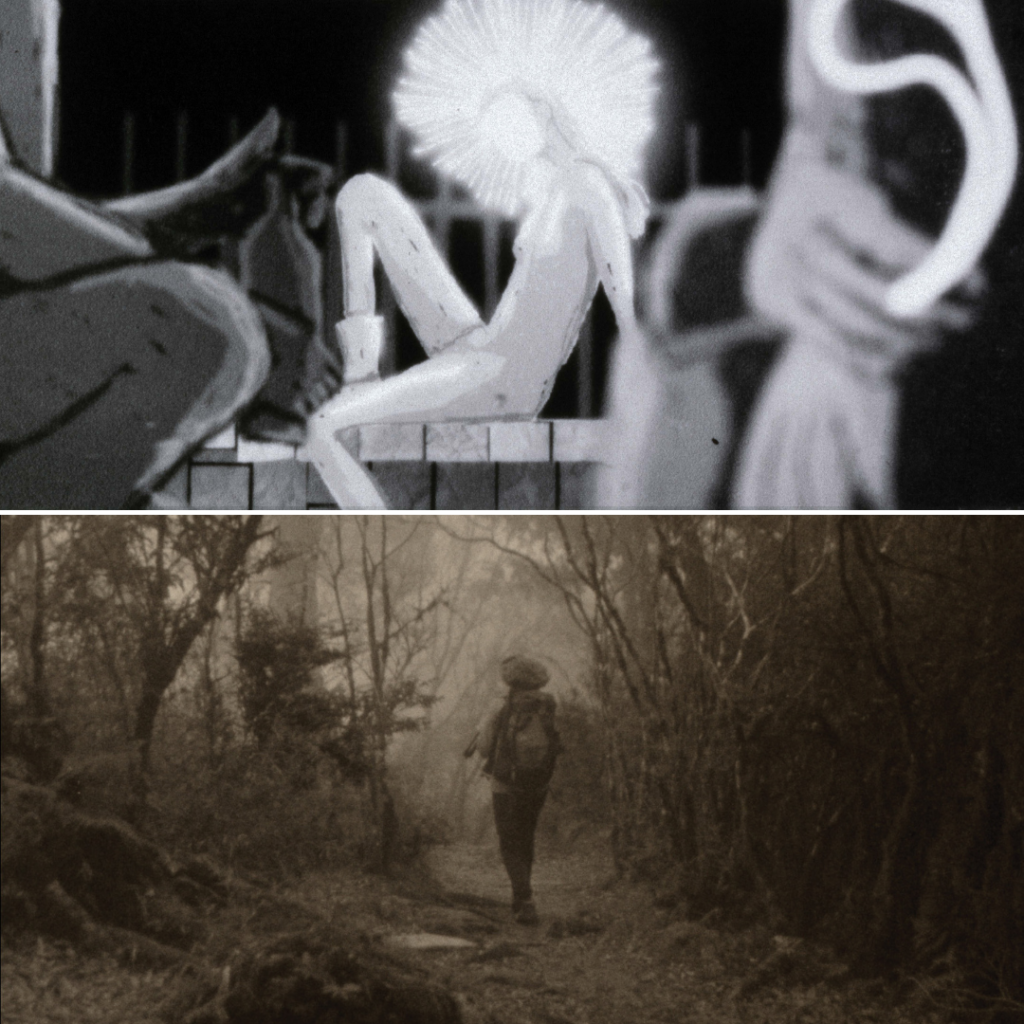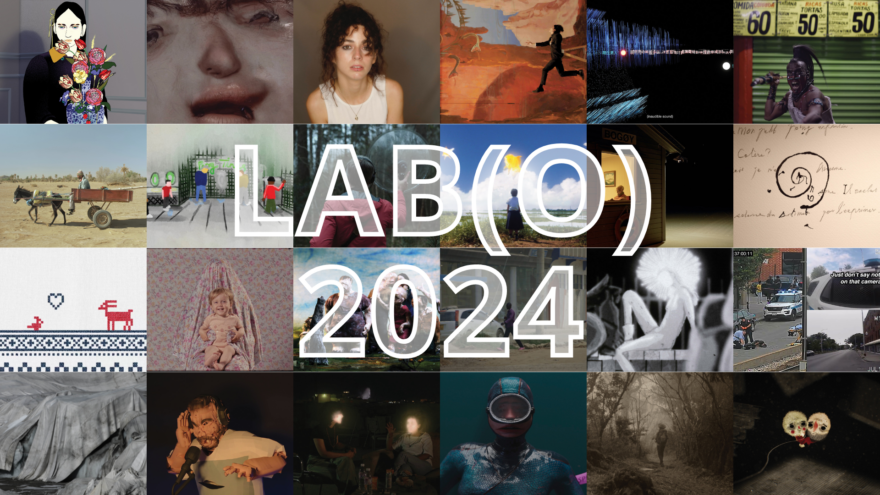23rd Lab Competition
Immemory

The title is a nod to Chris Marker who was active in the social and political reality of several countries, but was also the creator of a body of work centered on memory. Many of the films in the 2024 Lab competition echo that: they are committed, full of life and totally of their time. The Mexican filmmaker Julio Hernández Cordón brandishes his camera as a way to construct a collective memory, and the way he transmits tales of resistance is masterly, summoning popping, motivated young people. With Los Rayos de una Tormenta, he refocuses debate about the impact of colonialism on his country.
In 1997, René Vautier was a member of the International Jury. An activist for citizen filmmaking and for films with a social impact, he was pleased with those daring films. He made Afrique 50, an anticolonialist tract. He would certainly have appreciated Até Onde o Mundo Alcança by the Brazilian filmmaker Daniel Frota de Abreu who provides a surprising condemnation of the long-term effects of colonialism on Brazil.
Xacio Baño, a passionate Galician director, takes a look at the photographs that we discard as we sift through them. When enough of them pile up, they begin to trace an outline, a map of the imaginary country that exists within us. In Non te Vexo, we arrange, sift through and accumulate signs, and fool ourselves into thinking we’re going to show them to someone.
How would Chris Marker have made use of Artificial Intelligence? It’s a moot question but one that makes you want to watch Level 5 again. In 512X512 Arthur Chopin approaches the zone of immemory that Marker was fond of. Deep in the bowels of AI, he prompted, corrected and regenerated, and the result is both fascinating and terrifying. The same sorts of unexpected things crop up as with more traditional creative approaches. The mix of technology and poetic language takes on a level of interest because it implies subjectivity. You’ve got to be creative!
Bill Morrison is back in competition again after having several films selected at Clermont-Ferrand, directing feature films and being a member of the Lab Jury in 2014. While he has a habit of magnifying the archival aspect of his film, with Incident, he moves out of his comfort zone: using the internet allows him to document and implacably catalogue the police violence that occurred in Chicago in 2018.


Via Dolorosa is both a suffocating plunge into the Jerusalem of director Rachel Gutgarts, and an introspective journey into her life. The film explores her discovery of her sexuality, her addiction to drugs and her intensely graphic and hallucinatory vision of religion. That is how she draws a little-known portrait of her hometown.
The 2023 retrospective dedicated to Taiwan was an occasion to focus on up-and-coming talents such as Pang-chuan Huang. After winning two important awards at Clermont-Ferrand, he is back with Petit cahier de cinéma, where he experiments with different developers for his film; red wine gives a violet tint to the French part of his film. What a lovely way to celebrate his love of film and of our country.
These are just a couple of examples to pique your curiosity about the plethora of films in the 2024 Lab Competition! Exploring the dark side of films is a way to return with a better understanding of their light side and their beauty.
Facts and figures









